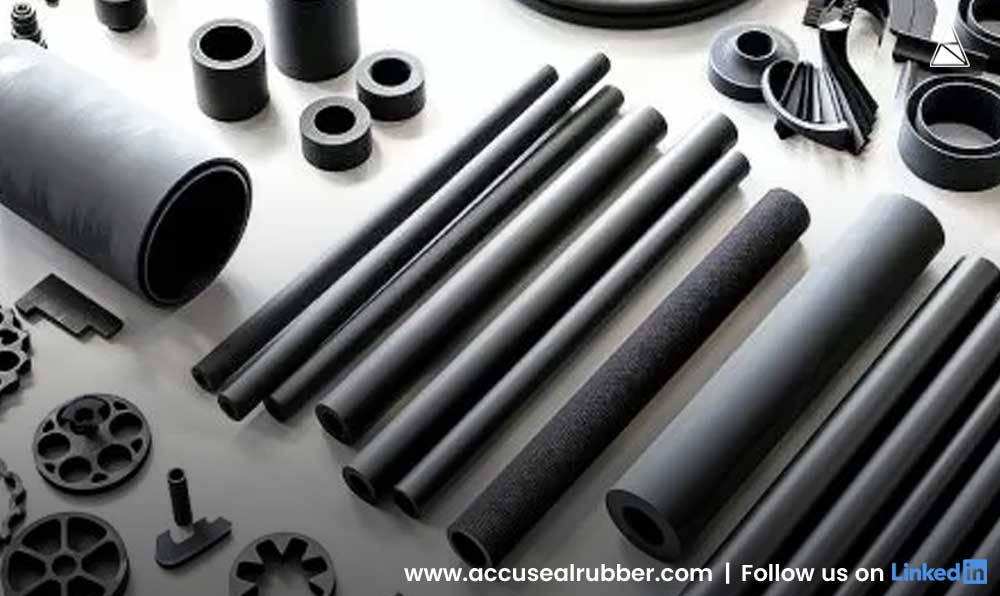When purchasing rubber components, whether for industrial applications, automotive parts, medical devices, or consumer products, certification plays a crucial role in ensuring quality, safety, and regulatory compliance. But with so many certifications available, how do you know which ones matter most?
This FAQ will guide you through the key certifications to look for when selecting rubber components, helping you make informed decisions and ensuring that your products meet industry standards.
1. Why Are Certifications Important for Rubber Components?
Certifications ensure that rubber components meet specific quality, safety, and environmental standards. They provide assurance that the material has undergone rigorous testing and adheres to industry regulations. Certifications also help in reducing risks related to product failure, compliance violations, and environmental impact.
2. What Are the Most Common Certifications for Rubber Components?
There are several industry-specific and international certifications that indicate the quality and compliance of rubber components. Below are some of the most essential certifications:
a) ISO 9001: Quality Management System
What it means: ISO 9001 certification ensures that the manufacturer follows a standardized quality management system (QMS). It signifies that the company is committed to continuous improvement and customer satisfaction.
Why it matters: It guarantees that the rubber components you purchase meet consistent quality standards, reducing defects and performance issues.
b) ISO 14001: Environmental Management System
What it means: This certification indicates that the manufacturer adheres to environmental management standards, focusing on reducing waste and minimizing environmental impact.
Why it matters: It ensures that the rubber components you buy are produced in an environmentally responsible manner.
c) ISO 45001: Occupational Health and Safety
What it means: This certification is for occupational health and safety management systems.
Why it matters: It assures that the manufacturer prioritizes workplace safety, which indirectly impacts the reliability of the rubber components produced.
d) RoHS (Restriction of Hazardous Substances)
What it means: RoHS compliance ensures that the rubber components are free from hazardous substances like lead, mercury, and cadmium.
Why it matters: It is crucial for products intended for electronic and electrical applications, ensuring safety for users and the environment.
e) REACH (Registration, Evaluation, Authorization, and Restriction of Chemicals)
What it means: This European regulation restricts the use of certain hazardous chemicals in products.
Why it matters: Ensures that the rubber used in components does not contain harmful chemicals, making it safer for users and the environment.
f) FDA Compliance for Food-Grade Rubber
What it means: The FDA (Food and Drug Administration) sets regulations for rubber components used in food and beverage industries.
Why it matters: If the rubber components will be in contact with food, they must be FDA-approved to ensure they do not contaminate food products.
g) NSF Certification
What it means: NSF International sets safety and quality standards for materials used in food, water, and healthcare applications.
Why it matters: If the rubber component is used in potable water systems or food production, NSF certification is a must-have.
h) ASTM Standards Compliance
What it means: The American Society for Testing and Materials (ASTM) establishes technical standards for materials, products, and services.
Why it matters: It ensures that the rubber material meets specific performance criteria based on industry needs.
i) UL (Underwriters Laboratories) Certification
What it means: UL certification verifies that rubber components meet safety and performance standards.
Why it matters: It is especially important for electrical and automotive rubber components that need fire resistance and durability.
3. How Do These Certifications Impact the Durability and Performance of Rubber Components?
Certifications ensure that rubber components perform optimally under different conditions. For example:
-
ISO 9001 certification ensures quality consistency, reducing defects.
-
RoHS compliance means the components are free from hazardous substances, increasing longevity.
-
FDA compliance ensures that rubber materials do not degrade in food-related applications.
4. How Can You Verify If a Rubber Component Has the Necessary Certifications?
To verify certifications:
-
Ask the supplier for certification documents.
-
Check the manufacturer’s website for compliance details.
-
Look for certification marks on product packaging.
-
Contact certification bodies for verification.
5. What Industries Require Certified Rubber Components?
Rubber components with proper certifications are essential in industries such as:
-
Automotive: ISO and ASTM standards ensure safety and durability in vehicle parts.
-
Medical and Healthcare: FDA and ISO 13485 compliance guarantee biocompatibility.
-
Food and Beverage: NSF and FDA certifications ensure safety in food processing.
-
Electronics: RoHS and UL certifications prevent hazardous material use.
-
Construction: ASTM and ISO certifications ensure material reliability.
6. What Are the Risks of Using Non-Certified Rubber Components?
Using non-certified rubber components can lead to:
-
Product failures due to substandard materials.
-
Legal issues for not meeting industry regulations.
-
Health risks from toxic materials.
-
Environmental harm due to hazardous substances.
7. How to Choose the Right Supplier for Certified Rubber Components?
When selecting a supplier:
-
Check their certification credentials.
-
Verify their track record in the industry.
-
Ensure they comply with international standards.
-
Request sample components for quality assessment.
Conclusion
Selecting rubber components with the right certifications is critical for ensuring quality, safety, and regulatory compliance. Whether you’re in the automotive, medical, food, or construction industry, making sure your rubber parts meet recognized standards can save costs, prevent failures, and maintain product integrity.
For high-quality, certified rubber components, consider Accuseal Rubber Inc., a trusted provider of industry-compliant solutions. Their commitment to quality and adherence to global standards makes them a reliable partner for all your rubber component needs.

 Nick Parker
Nick Parker